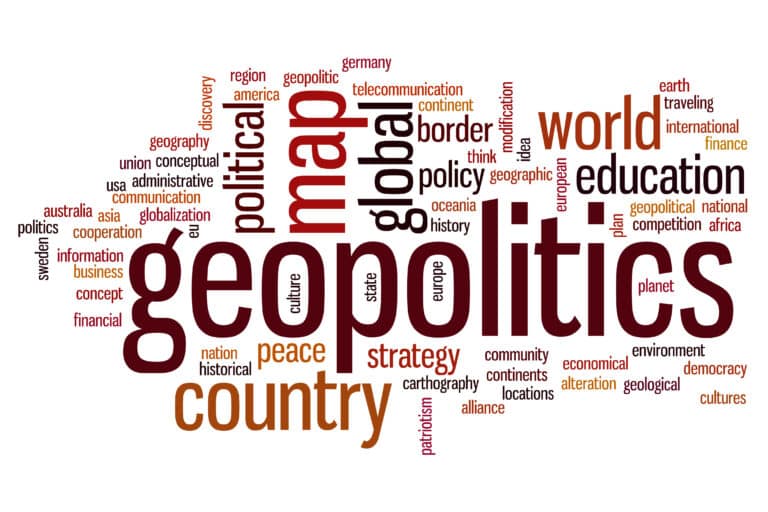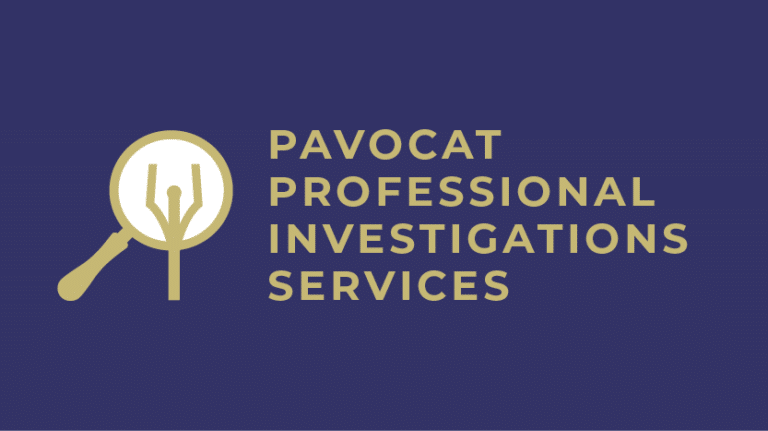The latest Corruption Perceptions Index(CPI) has been published by Transparency International, and it’s bad news for the United Kingdom, once regarded as a global leader in countering corruption.
Historically the United Kingdom has scored well in the CPI, peaking in 2017 with a score of 82/100 and ranking 8th out of 180 nations.
While the UK remains in the top 20, it has slipped seven places to 18th from the 2021 position and dropped five points. This is the worst performance for the UK since comparable records began
The UK has slipped at a similar rate as autocracies like Azerbaijan and Qatar which is not good company.
The Corruption Perceptions Index is published annually by Transparency International. It is a measure of the performance of the public sector based on research gathered through up to thirteen different surveys of business executives and country experts. It is based on their perceptions of public sector corruption.
The surveys will typically ask questions about the corrupting influence of political donors, bribery in the public procurement process, management of public finance and other related matters. The index is based on a score of 0-100 where 100 is considered to be very clean, while 0 is perceived to be very corrupt.
Corruption in the United Kingdom
There have been a number of high-profile cases of corruption in the UK over the last few years. But despite being widely reported the public hasn’t really identified them as corruption, but rather as poor behaviour. Politicians have not stepped up to close the weaknesses and loopholes in legislation that have allowed such activities to take place in any meaningful way.
Cash for Questions 1994 and 2021
The 1994 scandal related to MPs taking cash from the then-owner of Harrods Mohamed al Fayed in exchange for Parliamentary Questions. It resulted in the ministerial resignations of then-Conservative MPs Neil Hamilton and Tim Smith. This was at the time when MPs were claiming for duck houses, moats and heating stables as genuine business expenses.
In 2021 Owen Patterson MP resigned having been found guilty of breaking lobbying rules for MPs by meeting with government officials on behalf of a company for which he undertakes paid consultancy work using his parliamentary office and stationery for his consultancy work, and failing to declare interests in some meetings. The Commissioner for Parliamentary Standards described these activities as a “serious breach” of the rules.
Boris Johnson, Owen Patterson and Standards in Public Life
Prime Minister Boris Johnson’s failure to follow the advice of the Independent Ethics Adviser led to the resignation of two advisers in less than two years. This alongside the longest vacancy for this post since Tony Blair established it to support the Prime Minister with independent advice and guidance to uphold the high standards expected of the Government by the public. He attempted to cover up the Owen Patterson case and refused to investigate allegations that Priti Patel bullied civil servants when she was Home Secretary.
In May 2022, Johnson issued an update to the Ministerial Code which removed the expectation that ministers should resign if they breached it, except when they “knowingly misled” Parliament. The Committee on Standards in Public Life had recommended the strengthening of the powers of the Independent Adviser was ignored by Johnson, leaving more scope for Prime Ministers to potentially deal with breaches of the Ministerial Code with petty remedies rather than resignations.
In this case, while Boris Johnson didn’t commit an act of corruption, he stripped the independence and powers of the organisations that monitor, investigate and enforce ethical standards, leaving openings and opportunities for those who would engage in corrupt activities.
Once the envy of the world for high Parliamentary standards, the UK no longer is, and this is reflected in the Corruption Perceptions Index.
Covid-19 and Public Procurement
It has been widely reported that contracts for personal protective equipment (PPE) and planning decisions were seemingly made based on who you knew rather than what was in the public interest. There appears to be a lack of transparency and corruption that garnered public attention during the Covid pandemic.
In the Track and Trace Report published by Transparency International, questions have been raised regarding significant numbers of awarded contracts, amounting to £billions taxpayers’ money.
The report identifies that over 90% of Covid related contracts were directed through The Department of Health and Social Care, NHS England, The Office for National Statistics, NHS National Services Scotland and The Department for Education. It has identified 73 contracts awarded between February and November 2020 worth over £3.7billion whose awards “merit further investigation.”
Of these contracts, 65 were worth £2.9 billion and were for PPE equipment. The report goes on to say that at least 24 of these PPE contracts, worth £1.6 billion, were awarded to organisations or individuals with known political connections to the “party of government in Westminster.”
There is scope in public procurement to remove the competition from the tendering process in exceptional circumstances, but ongoing investigations by journalists, public interest litigation and the National Audit Office are uncovering more evidence to suggest that critical safeguards for protecting public money have been abandoned without sufficient justification.
There has been no suggestion that ministers have breached the Ministerial Code of Conduct or have committed acts of misconduct in government. But allegations have been made in relation to improper conduct in the public procurement process.
What if ministers were prepared to breach the Ministerial Code during Covid-19 procurement proceedings? Corruption begins when corrupt actors discover weaknesses that can be exploited for their own personal gain. It seems clear that these weaknesses and opportunities exist so public money was put at risk.
Contract Overcharging at Unite Union
News emerged in December 2022 of two independent reports alleging corruption at the Unite Union. General Secretary Sharon Graham, who succeeded Len McCluskey in 2021 instigated two investigations. She instructed Martin Bowdery KC, and Grant Thornton to separately investigate the Union’s Birmingham hotel and conference development. In 2012 this project was estimated at a total cost of £7million. The final cost on completion was in excess of £100 million.
In one instance a contractor quoted £90,000 but was eventually paid £1.2 million. Grant Thornton discovered another example where a supplier had been awarded a contract worth around £100,000 per month for eight years. Over the eight years, this would equate to £9.6 million, more than the original estimate for the entire project.
General Secretary Sharon Graham instructed Grant Thornton to launch an “external forensic investigation” into the union’s service providers.
Concerns about potential criminality have meant that the reports have been passed to the Police to investigate, who have requested that the two reports remain confidential while they investigate.
While unions are not strictly speaking public sector organisations, Unite is the largest donor to the Labour Party. The implications of corruption within the Unite Union are serious enough.
But as a donor to the party in opposition and future party of government, serious questions must be answered in terms of how the union itself will tackle corruption internally, and how the Labour Party will tackle allegations of corruption in its donors.
The same, of course, applies to all political parties and their donors, not forgetting Russian donors to the Conservative Party, for example.
Money Laundering in London
London has been recognised as the money laundering capital of the world thanks in part to the liberalisation of the financial sector begun by Margaret Thatcher, and continued by the Labour Government with a commission on deregulation, according to a far-reaching report by the Financial Times.
The report states that London “for decades represented an incubator for corruption and criminals from all over the world and that it did not turn a blind eye to Russian money, but rather welcomed it.” The London Stock Exchange has welcomed numerous Russian companies, making the UK and London their European base.
In fact, while he was Mayor of London, Boris Johnson was quoted as saying that he wanted to make London “a hub for Russian money”.
The FT report alleges that 31 law firms, 86 banks and 177 educational institutions in the UK laundered money from around the world. It goes on to allege that the value of money laundering in the UK is between £23 billion and £57 billion.
Government Response to Countering Corruption
Upon taking office, Prime Minister Rishi Sunak pledged to clean up the public sector and tackle the issues in public procurement, but as yet there has been little progress on this. What is critical is that legislation is brought forward to tackle the key issues. He has appointed a new Independent Ethics Adviser, but this post has little independence or power, so strengthening this role should be a priority, in line with the previously ignored recommendations made by the Committee for Standards in Public Life.
Transparency in Lobbying
The lobbying of ministers should be a matter of public record. Countries including the United States, Canada and Ireland have functioning lobbying transparency registers, so why this is not in place in the UK is a question that needs answering. Most of the scandals that have come to light have come from investigative journalists and their sources rather than internal processes. There must be greater transparency in lobbying so that ministers can be held to account by the public.
Capping Donations to Political Parties
As a nation, we are not in a credible position to protect foreign democracies or criticise the performance of the public sector in other countries until our own house is in order. Limiting the amount that can be made in political donations would reduce the temptation of any quid pro quo.
Public Procurement
During the Covid-19 pandemic public procurement processes were largely set aside in the interest of expediency with the resulting problems and waste. Putting in place measures that can be used in the event of a crisis or emergency should be developed for future use. Public Procurement processes should be reviewed and updated, and robust measures and safeguards put in place to ensure transparency in the process so that the public sector can demonstrate value for public money.
Tackling Money Laundering and Financial Crimes in London
Much of the problem lies in the ease with which companies can be set up and Companies House rules circumvented to disguise who really owns or has a beneficial interest in that company.
It is simple to create a shell company in the UK, and there is little or no investigation into such companies. Add to that the willingness of the Government to fail to legislate effectively to tackle money laundering and other corrupt activities, and it is no wonder that London has the reputation that it does.
Government must put in place measures that tackle money laundering and other financial crimes, and fully prevent the flow of Russian money and assets through the UK, acting as a global leader in the fight against corruption. If this requires embargoes rather than sanctions then this should be a consideration.
The Pavocat Response
The key to countering corruption is transparency and independence. Corruption comes in many forms, but at its core is the desire for the corrupt actor to benefit personally from their activities. They seek out opportunities, whether that’s through weaknesses, loopholes or coercive means in procurement and other processes.
In the case of money laundering in London, there is weakness in both the political will to tackle the issue and a lack of understanding of the impact of opening doors to individuals such as Russian oligarchs. Weak legislation and regulation allow for opportunities to be taken.
A root and branch review and development of an effective strategy that puts in place the right measures to tackle money laundering and other financial crimes would be required. There must also be the political will to tackle the issues on the part of the government, and future governments, and acceptance that the expertise to deliver what is required may not exist within the civil service. In fact, to maintain independence, delivery, monitoring and enforcement should be conducted by a fully independent body.
With regard to procurement processes, these should be reviewed and strengthened, particularly for emergency or crisis situations. It seems clear from various reports (including Transparency International) and investigations by journalists that public procurement in the UK suffers structural weakness that exposes public money to risk. This includes overpricing and waste.
If the government is to restore the United Kingdom’s position on the Corruption Perceptions Index, tackling weaknesses in public procurement is critical.
Standards in public life and the various scandals including cash for questions, MP expenses, and political donations can be addressed by strengthening the advice provided to the Prime Minister and safeguarding the independent position of Independent Ethics Adviser. Recommendations by the Committee for Standards in Public Life should be acted upon where previously they have been ignored.
There should be a higher expectation of behaviour from MPs and public officials, and more consequences should they be found to be breaching those standards. For example, the restoration of the expectation that ministers resign should they breach ministerial standards is a minimum, but this could be a requirement, determined by independent investigation.
It is clear from the Corruption Perceptions Index 2022 that there is a growing issue of corruption in public life in the United Kingdom which must be tackled as a priority. The CPI 2022 shows a slow decline from a high point in 2017, and the Covid-19 pandemic has left the UK wanting in terms of transparency and accountability in public procurement. There has been a growing number of scandals as well, whether linked directly to the government, Prime Ministers, MPs, political parties or their donors.




